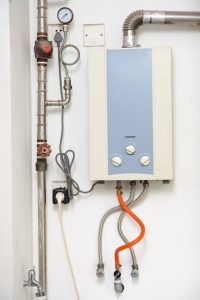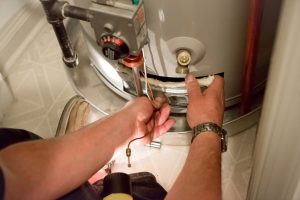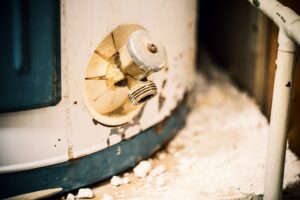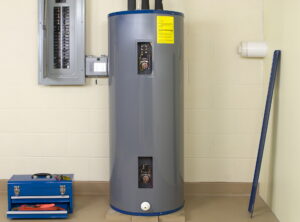Water heaters are pretty robust systems, and not prone to frequent breakdowns. However, that does not mean that they are immune from all problems and repair needs. Water heaters are vulnerable to a number of different problems, each capable of inflicting various levels of damage. Let’s take a look at some of the common causes of water heater repair, and how you can prevent them.
Rust
Any system that regularly deals with water is going to risk oxidization. That is especially true for water heaters, which are often exposed to water 24/7. Rust can cause various parts of the water heater to fail, and can even cause the tank to rupture. Tankless water heaters do not store water, so their risk of rust is slightly lessened. For tank water heaters, however, slightly stronger countermeasures are required.
Tank water heaters are equipped with devices called “sacrificial anode rods.” These are long, metal rods that are inserted into the tank, and protect the lining of the tank by rusting away themselves. Once the anode rods are completely degraded, however, the tank lining will once again be vulnerable to rust. The best way to stop this from happening is by checking your anode rod at least once a year, and replacing it if necessary. If you don’t know how to check your anode rod, call a professional to help you.
Uneven Heat
If you have a lot of people using hot water at once in your house, it is very possible to simply exhaust the supply of hot water on hand. When that happens, you just have to wait for more. However, there is a difference between that and a water heater that is seemingly unable to provide consistently hot water regardless of the situation. If that is happening, you could have a number of different problems. An issue with the heater’s circulator pump could be preventing the hot water from reaching you. However, it is also possible that the heater itself is having trouble heating the water. That’s a more serious issue, and one that you’ll need a professional technician to diagnose. The best way to prevent these kinds of problems is simply to have your water heater inspected at least once a year by a professional.
If you water heater is giving you problems, call Comfort Flow Heating. We provide water heater repair service throughout Eugene, OR.
Continue Reading
Tags: Eugene, Water Heater
Posted in Heating | Comments Off on Common Causes of Water Heater Repair





